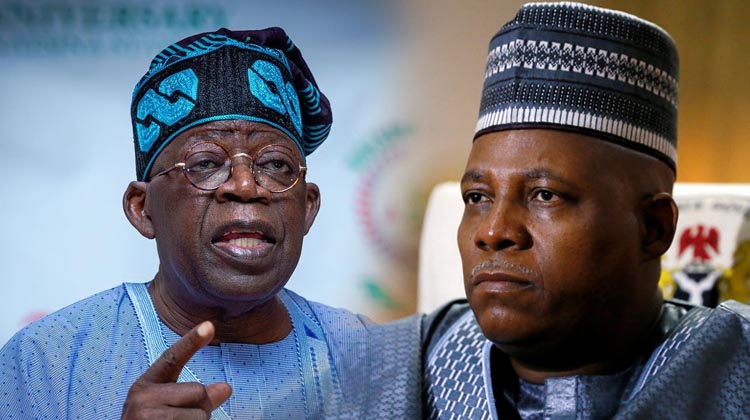
President-elect Bola Tinubu and Vice President-elect Kashim Shettima have called on the Presidential Election Petition Court to reject Atiku Abubakar and the Peoples Democratic Party’s request for a live broadcast of the proceedings.
POLITICS NIGERIA reports that the respondents argued that the relief sought by the applicants is not within the court’s authority to grant.
“The motion is an abuse of the court’s processes,” the respondents stated, expressing their respect for the petitioners. They further criticized the application, dismissing it as frivolous, and emphasized that the court is not a platform for public entertainment but a place for serious legal proceedings.
Represented by their legal team led by Chief Wole Olanipekun, the respondents questioned why a petitioner would file an application aimed at distracting the court and wasting its valuable time.
In their counter affidavit, they asserted that the application pertains to matters of court policy formulation, which falls outside the jurisdiction of the Presidential Election Petition Court in its current composition.
“The application also concerns the powers and jurisdiction vested in the President of the Court of Appeal by the Constitution, which this court cannot address at present. It touches on administrative functions reserved exclusively for the President of the Court of Appeal,” they argued.
The respondents emphasized that the application serves only to consume the court’s precious judicial time and is unrelated to the petition filed by the applicants. They urged the court to dismiss the application in the interest of justice.
In their written address, the respondents refuted the applicants’ reference to the allowance of virtual proceedings during the COVID-19 pandemic. They pointed out that Atiku and his party failed to acknowledge that practice directions were issued by the respective courts to facilitate such proceedings.
Another aspect of the application criticized by the respondents is its invitation for the court to issue an order that it cannot supervise.
They stated, “The court, like nature, does not make an order in vain or an order that cannot be enforced.”
Moreover, the respondents described the application as academic, unnecessary, time-wasting, and unexpected, particularly considering that the petitioners should be seeking a speedy trial for their petition.
They argued that the application invokes Section 36(3) of the Constitution, which guarantees public proceedings, but contended that “public” in this context refers to a place accessible to the public, with the court itself sitting in open session, rather than behind closed doors or in camera.
The respondents also highlighted that in cases involving class actions, the individuals represented by the plaintiffs or petitioners are always specified in the initial filing. However, in this application, the public on whose behalf it is presented remains undefined and unknown.
Ultimately, the respondents emphasized the importance of maintaining the court as a solemn, disciplined, and honorable institution, rejecting the notion that it should serve as a platform for public entertainment. They reiterated their view that the motion constitutes an abuse of the court’s processes.
